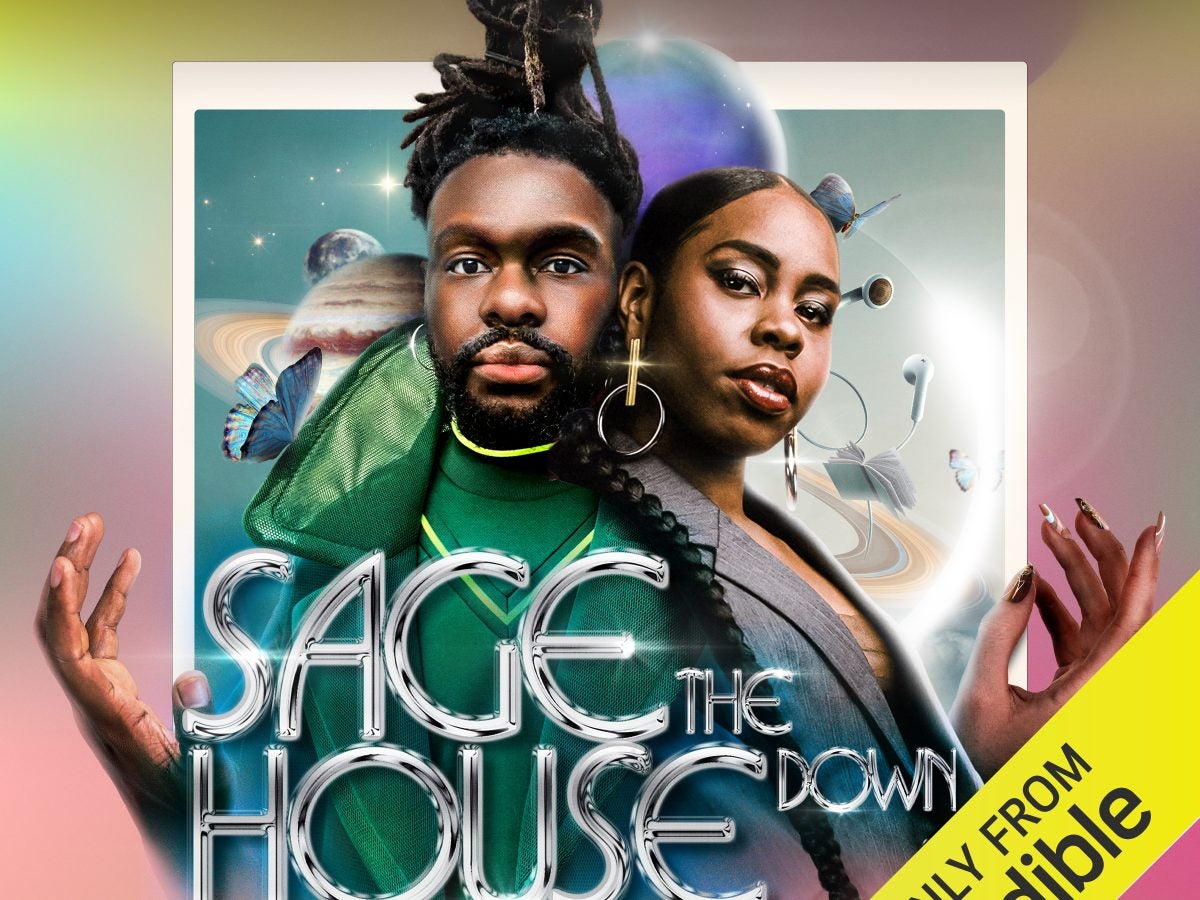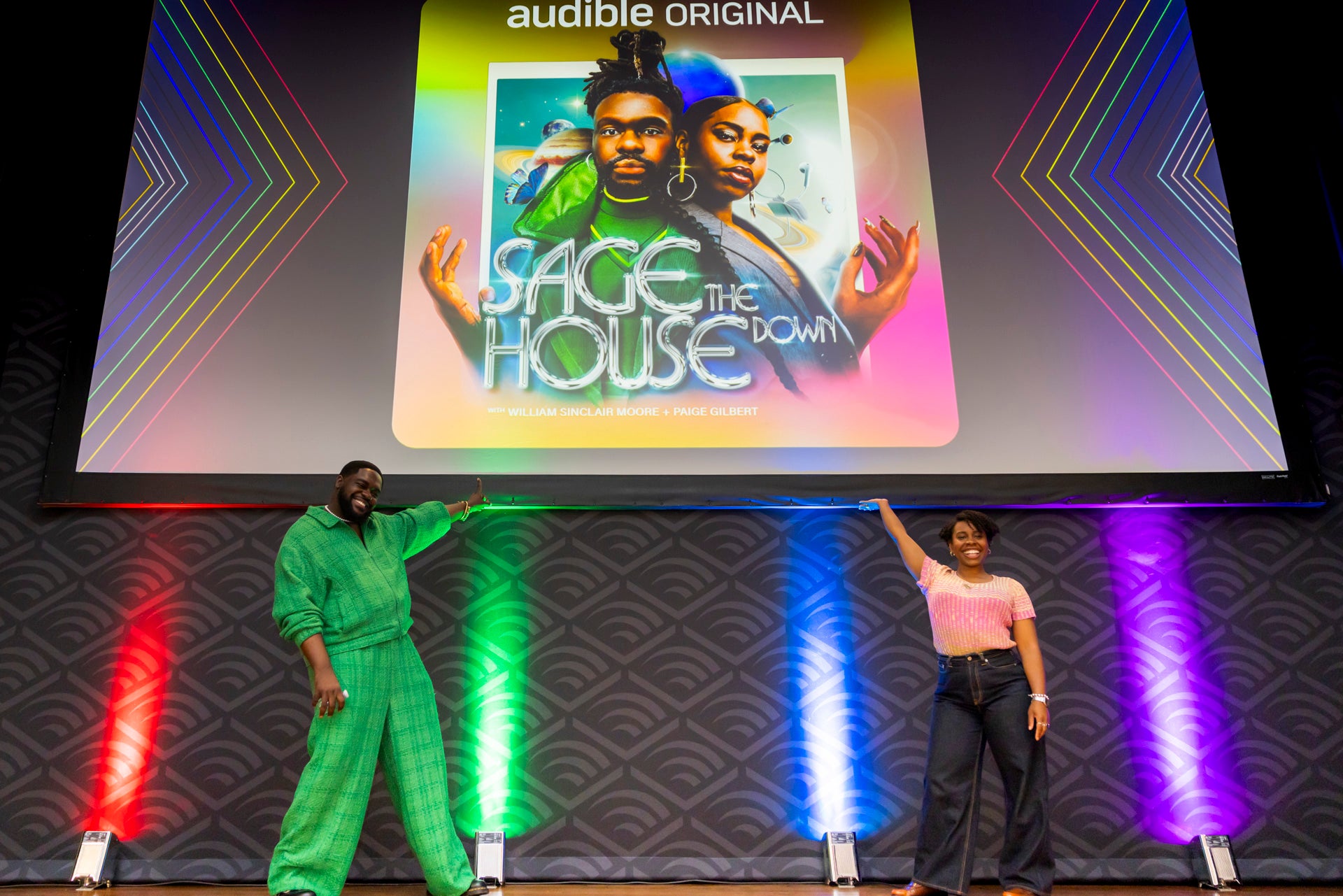
When Kendra McMurray received a multiple sclerosis (MS) diagnosis in 2015, a personal prayer for healing became an unexpected catalyst for a spiritual awakening. Daily meditation, journaling, and self-development through divination, including oracle and tarot cards, gave McMurray a sense of purpose and became a lifeline while battling chronic illness.
“In addition to strengthening my faith, these spiritual practices improved my intuitive psychic abilities, also increasing my overall health and wellbeing,” she says.
When it comes to incorporating spiritual practice as self-care, McMurry is not alone. In fact, according to studies, Americans engage in a wide range of methods, including prayer, reading, art, being in nature, yoga, meditation, writing, ancestral work, tarot work, fasting, and protest. Amidst ongoing national and world crises, individuals, now more than ever, are searching for additional ways to support their mental, physical, and emotional health.
Enter best friends Paige Gilbert and William Sinclair Moore.
Throughout the years, Gilbert and Moore’s friendship included frequent bonding sessions over all things mystical. So, when they heard about the Audible Podcast Development Program, they couldn’t resist the opportunity to apply to bring those conversations to the masses.
The pair, who both have backgrounds in theater, already hosted weekly Instagram lives featuring healers who sought to demystify spirituality from a Black lens. A funded podcast (which also provides development support before, during, and after production) would give them the opportunity to expand their mission even further, specifically reaching communities like their neighborhood in Detroit where they both were raised.
“When we started our spiritual journeys, we were constantly looking for people like us [Black, queer, Black women],” says Moore, who also feels like this demographic is too often omitted from mainstream conversations.
With a 1 and 3,000 chance, Gilbert and Moore took their shot. And they landed, bringing their program, Sage the House Down, to life.
Kelley Sullivan, the program’s director and Audible’s Senior Director of U.S. Partner Relationships, knew she had struck gold with Gilbert and Moore’s podcast application. “It was the authenticity, the spirit, the vibe, the energy…all of it just flew off the virtual page,” Sullivan says. “The voice was unique and the approach. And I really loved the idea of taking up a space in a space that didn’t always feel welcoming to Black and brown people.”
For both Gilbert and Moore, one topic that frequently came up in their discussions was how they were going to help others understand how spirituality can complement religion in bettering one’s well-being.
“When we think about practices like yoga, meditation, casting, and candle magic…the origins can be traced back to our people,” Gilbert says. “William and I realized that there is so much ‘magic’ in church, like being anointed with oil, praying, speaking in tongues, communion. These are all rituals that a lot of us who come from Christian backgrounds can attest to.”
Moore, who grew up in a Christian home, understands that the topics covered on the podcast might contradict religious beliefs, but he wants listeners to find ways in which spiritual practices support religiosity. He sees Sage the House Down as an intergenerational bridge–one that promotes deep conversations about the interconnectedness of spirituality, religion, and health between multiple generations.

“My mom, who is in her 60s, is someone who doesn’t necessarily believe in astrology, tarot, or ancestor venerations,” says Moore. After listening to all of the episodes, Moore’s mother, a devout Christian, complimented the pair on being leaders and drivers of free thought and promoting better wellness in Black communities.
“My mother feels so inspired at our openness to receive other people’s knowledge and other people’s ways of supporting wellness, and she said that she was starting to think about things in ways that she hadn’t before, and my brain was just like, oh my gosh, because I’ve had so many conversations with my parents about spirituality, and nothing stuck…but something about this podcast landed for them.”
While the podcast’s mission is to introduce spirituality in a digestible way and elevate Black spiritual healers, both Gilbert and Moore have learned a great deal about their own personal growth and healing.
“Before recording,I had just ended an 11-year relationship and so the grief episode was healing in so many ways. I came into the studio with a broken heart and left feeling like pieces of me have been mended,” Moore says. “And when I think of this type of experience, I realize that everyone has likely had this same experience. Sage the House Down takes my personal experience and makes it universal.”
Gilbert’s favorite episode also led to immense personal growth that, based on social media messages they’ve received, is shared amongst many listeners.
“I learned so much from the ancestor veneration episode, specifically about how to build an altar. It’s helped me to confront medical issues that have shown up in my life, but that I recently learned were similar issues that many of the women in my family have been dealing with for generations,” she says. “This is not only healing me, it’s healing them.”
Healing and wellness in any capacity is a lifelong journey. Their hope is that their program can support listeners along the way.
“I want everyone to feel welcome in this space, but we really want to heal the hood,” Moore says. “That is where we come from–the eastside of Detroit, Michigan. We want to send healing energy to all the places where people think they are unreachable. We want to send tools. We want to send resources, people that they can listen to and believe and trust and you know, they can trust us too, but also those people to our communities so that they can grow and evolve and learn as well and know that these practices are innately theirs.”
Gilbert adds, “Whether it’s meditating, sitting down in front of an altar, running, cooking, or pulling a card, there are so many spiritual elements of healing. And I just want everyone to have fun with it and trust yourselves.”